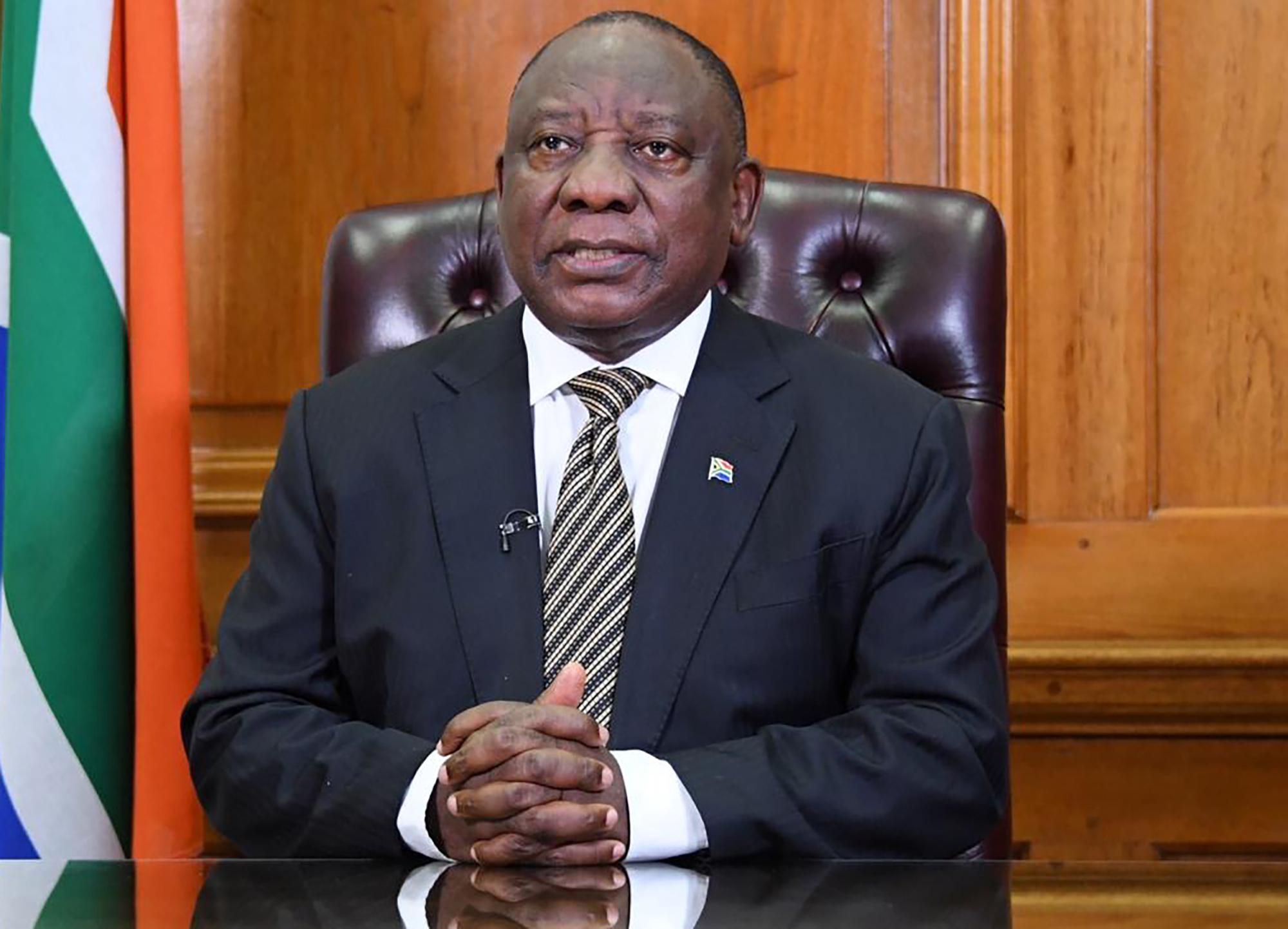President Cyril Ramaphosa has announced the country will enter a “new normal” under Level 1 of the Covid-19 lockdown, beginning on Monday 21 September, which will remove a large number of the social and economic restrictions implemented to slow the spread of the coronavirus.
“Even as restrictions have eased over the last month with our move to Alert Level 2, there has been a gradual, but steady, decline in new infections, hospitalisations and deaths,” said Ramaphosa on Wednesday evening.
South Africa recorded 1,923 new Covid-19 cases in the 24 hours to Wednesday night, bringing the total number of confirmed cases to 653,444, with 15,705 deaths and a recovery rate of 89.4%.
“We have succeeded in overcoming the worst phase of this epidemic while protecting the capacity of our health system,” said the president.
Under Level 1:
- some of the country’s border posts will reopen for international travel;
- public events and gatherings can be held with restricted attendance;
- liquor stores can open from Monday to Friday; and
- the curfew has been shortened to between midnight and 4am.
“We have withstood the coronavirus storm. Now is the time to return our country, its people and our economy to a situation that is more normal, that more resembles the lives that we were living six months ago. It is time to move to what will become our new normal for as long as the coronavirus is with us,” said Ramaphosa.
Many countries have experienced a resurgence in Covid-19 infections after passing their peak and Ramaphosa warned that a second wave in South Africa would be “devastating”. A number of activities remain banned while others can resume with limitations.
Further details of the Level 1 lockdown regulations will be revealed when they are gazetted in the next few days, but Ramaphosa said night vigils before funerals remain prohibited. A maximum of 100 people can now attend funerals, up from 50.
Existing restrictions on sporting events will remain, meaning amateur and professional sports will be permitted but without spectators. The president did not mention whether nightclubs could reopen or whether initiation schools can resume operating. Both have been prohibited since the lockdown began in March.
The state recently announced new regulations permitting visits to old age homes and correctional centres under strict conditions, but visiting patients in medical facilities is likely to remain prohibited under Level 1.
The tourism sector, which contributed almost 9% to the country's GDP in 2019, has been hit hard by the lockdown and opening up the country’s borders from 1 October is probably an effort to boost the ailing industry, along with the aviation sector, but visitors will be subject to containment and mitigation measures.
The state will limit travel to and from certain high-risk countries and only one land border post and three airports, OR Tambo, King Shaka and Cape Town International, will be open to international travellers.
Travellers must present a negative Covid-19 test on arrival that was conducted within 72 hours of departure. Those that don’t have a Covid-19 test must enter quarantine at their own cost.
Under the new regulations, social, political, religious and other gatherings will be permitted with either a maximum of 50% of a venue’s capacity or 250 people at indoor gatherings and 500 people at outdoor gatherings, a boon for the battered events industry.
Attendance at exercise, recreation and entertainment venues must be capped at 50% capacity, up from a maximum of 50 people during Level 2 of the lockdown.
“As we settle into a new normal and learn to live alongside the virus, we must continue to exercise every possible precaution to avoid infecting others,” said Ramaphosa.
He emphasised the need for people to continue wearing masks, practising physical distancing and washing and sanitising their hands. He also advised the public to download the Covid Alert South Africa app to improve contact tracing.
Multiple members of the ministerial advisory committee on Covid-19 had publicly stated that the country was ready to move to Level 1 while advising that strict measures need to remain in place to avoid a resurgence in infections.
Interim DA leader John Steenhuisen welcomed the move, but said it came “five months late”.
“It was already clear by mid-April that a severe, prolonged lockdown would have devastating socioeconomic consequences, including thousands of excess deaths to other diseases, millions of livelihoods lost, millions of households plunged deeper into poverty, thousands of businesses destroyed, widening inequality, and billions of rands of tax revenue lost, revenue which should have been pulling people out of poverty,” said Steenhuisen.
IFP spokesperson Mkhuleko Hlengwa said the easing of restrictions was a welcome relief for the recovery of the economy, but the state must continue to prepare health facilities for a second wave of infections.
The economy contracted 17.1% year-on-year in the second quarter of 2020 during what has been described as one of the world’s most restrictive lockdowns. According to research recently published by Discovery, the lockdown and other measures instituted by the state may have saved up to 16,000 lives.
“Although we have made remarkable progress, a number of our people are still getting infected and some are losing their lives,” said Ramaphosa.
“By any measure, we are still in the midst of a deadly epidemic. Our greatest challenge now — and our most important task — is to ensure that we do not experience a new surge in infections.” DM




